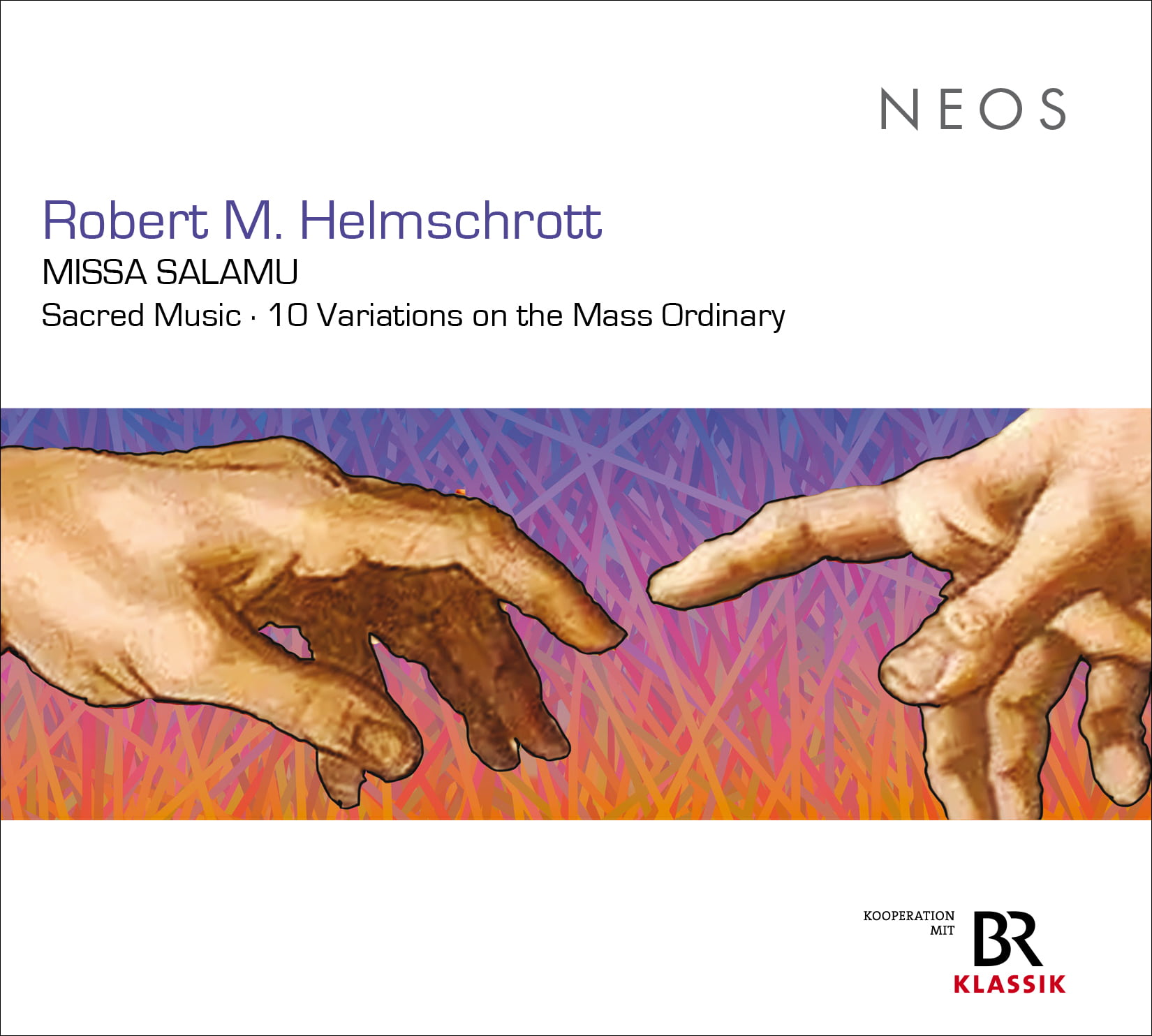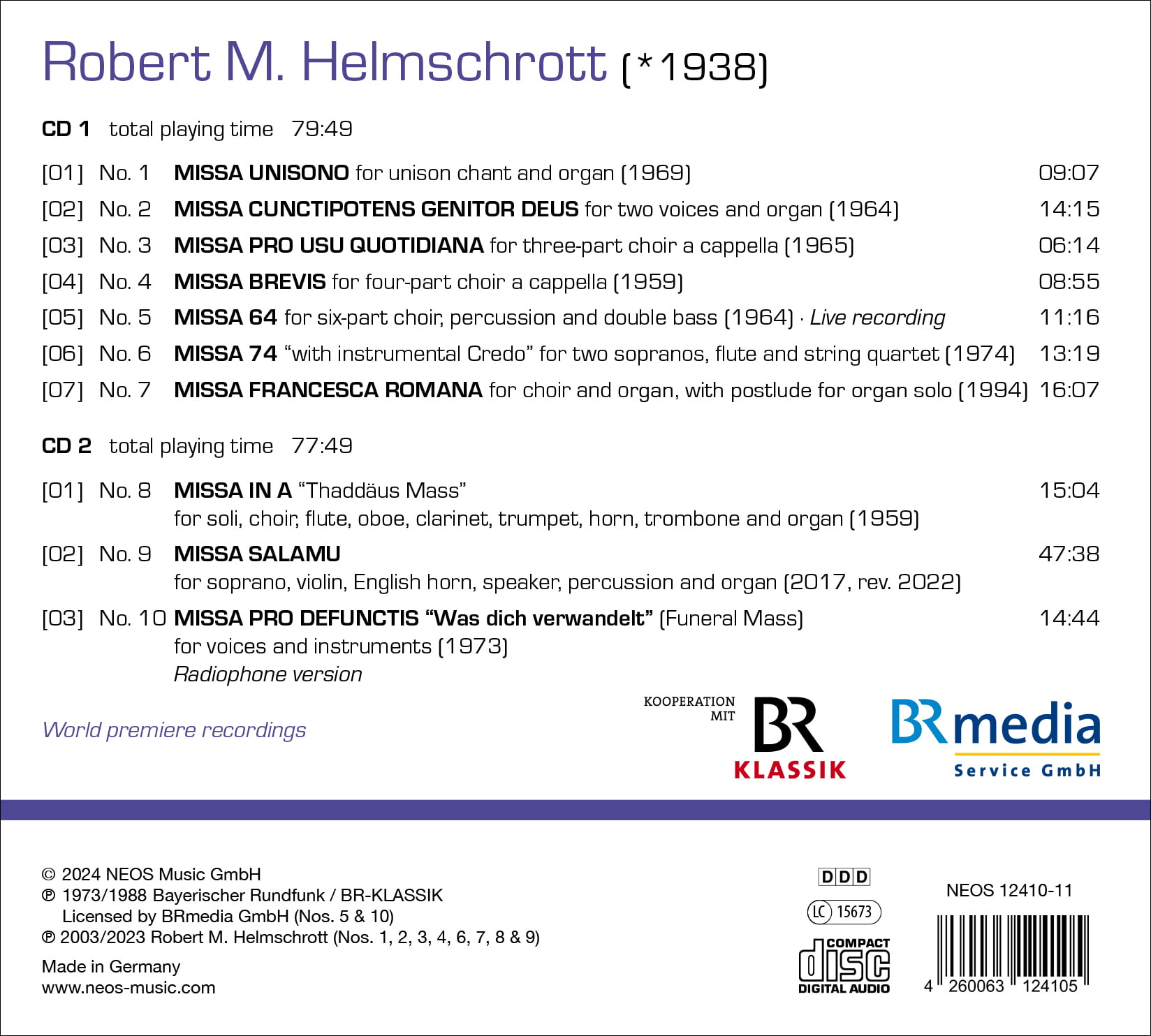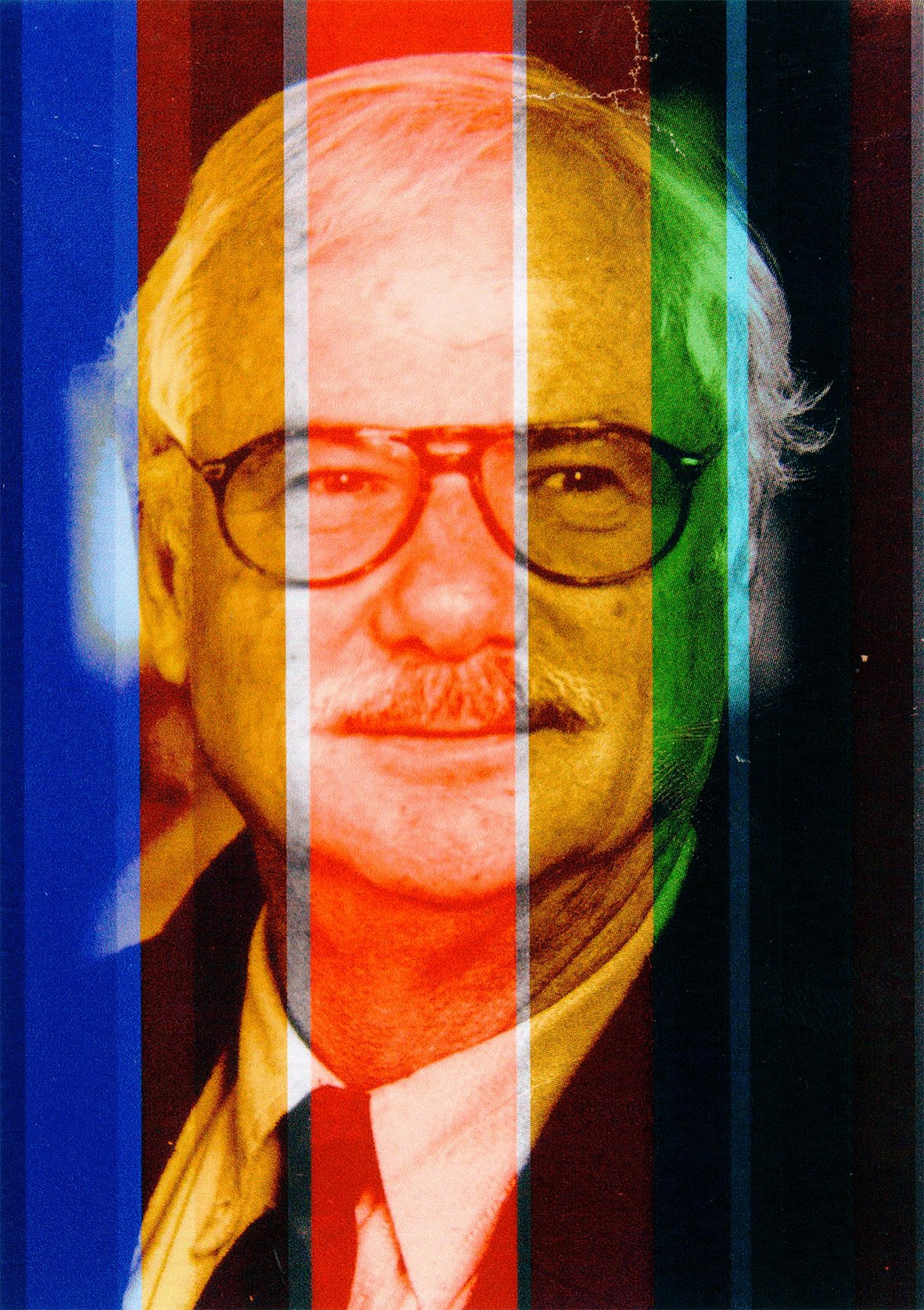The MISSA SALAMU is the focus of this double CD, at the end of a series of ten Mass settings that were created from 1959 to 2019. The work is based on the composition created in 2018 Salamu, which can be conceptually assigned to the topic of "interreligious dialogue": the Reformation of Reformations, the further thinking and further development of ecumenism - the "religious tolerance" towards all religions. Because by 2070 there will be more Muslims than Christians on earth (Bertelsmann Foundation Religion Monitor).
Is it oriented? MISSA UNISONO (No. 1) still has Gregorian unanimity, so it falls apart in the MISSA SALAMU all ties to the tradition of the mass as a genre, it is a cry in the mirror of time, the reversal of hope: war is the absence of peace.
The musical genre Mass with the parts Kyrie, Gloria, Credo, Sanctus and Agnus Dei has a long (musical) history. In the first Christian centuries, simple melodies emerged under the influence of Jewish ritual music, which developed into a virtuosic richness of unaccompanied unaccompanied songs. Since Pope Gregory the Great (540–604) this chant has been called “Gregorian chant”. Over the course of further centuries, a singing practice with several independent voices emerged. The most famous example of the beginning of polyphony is Mass of Our Lady (1364) by Guillaume de Machaut. It is the beginning of a unique cultural asset - the repertoire of the history of music. Rooted in it: the history of the fair as a genre, which culminates with the B minor Mass by Johann Sebastian Bach, the C minor Mass by Wolfgang Amadeus Mozart and the Miss Solemnis achieved by Ludwig van Beethoven.
The kyrie eleison (Lord, have mercy on us) was a common cry of homage to gods and rulers in pre-Christian times. In the Christian church service he received his assignment to the “penitential character”. In the Gloria The world order of the Christian faith regarding God in heaven and people on earth becomes fundamentally clear: "Glory to God in the highest and peace on earth among men." The Credo is the confession of faith and an integral part of the mass. With the Sanctus Christians join in the singing of the angels. They shout “Holy, holy, holy” to each other. The call was already heard in the synagogue service and was soon adopted by the Christians. The Sanctus received as “Benedictus« the addition “Hosanna to the Son of David.” Blessed is he who comes in the name of the Lord. Hosanna in the highest." The Agnus Dei describes the acclamation for the breaking of bread: "Agnus Dei, qui tollis peccata mundi" - Lamb of God (the symbol of Jesus Christ), you take away the sins of the world, have mercy on us, give us your peace - "dona nobis pacem". The concept of peace essentially determines the genre of the fair. Do mass recordings still fit into our times? The concept of peace in it certainly.
The ten masses were recorded between 1973 and 2023 with top-class performers.
For the MISSA SALAMU The award-winning actor Lars Eidinger was hired as a speaker.
The scores of the 10 masses are available in an anthology.
Inquiries to info@organpromotion.org


